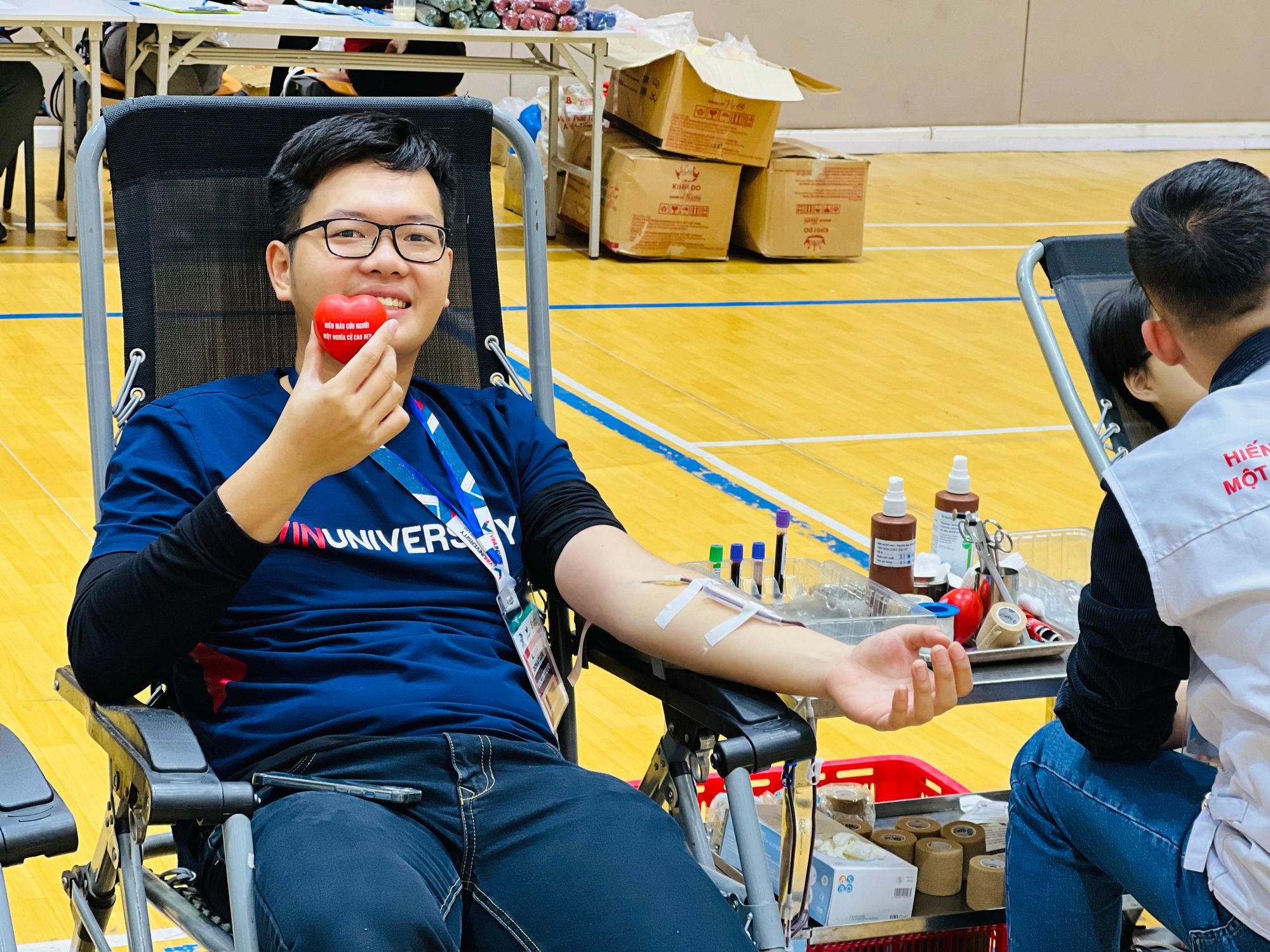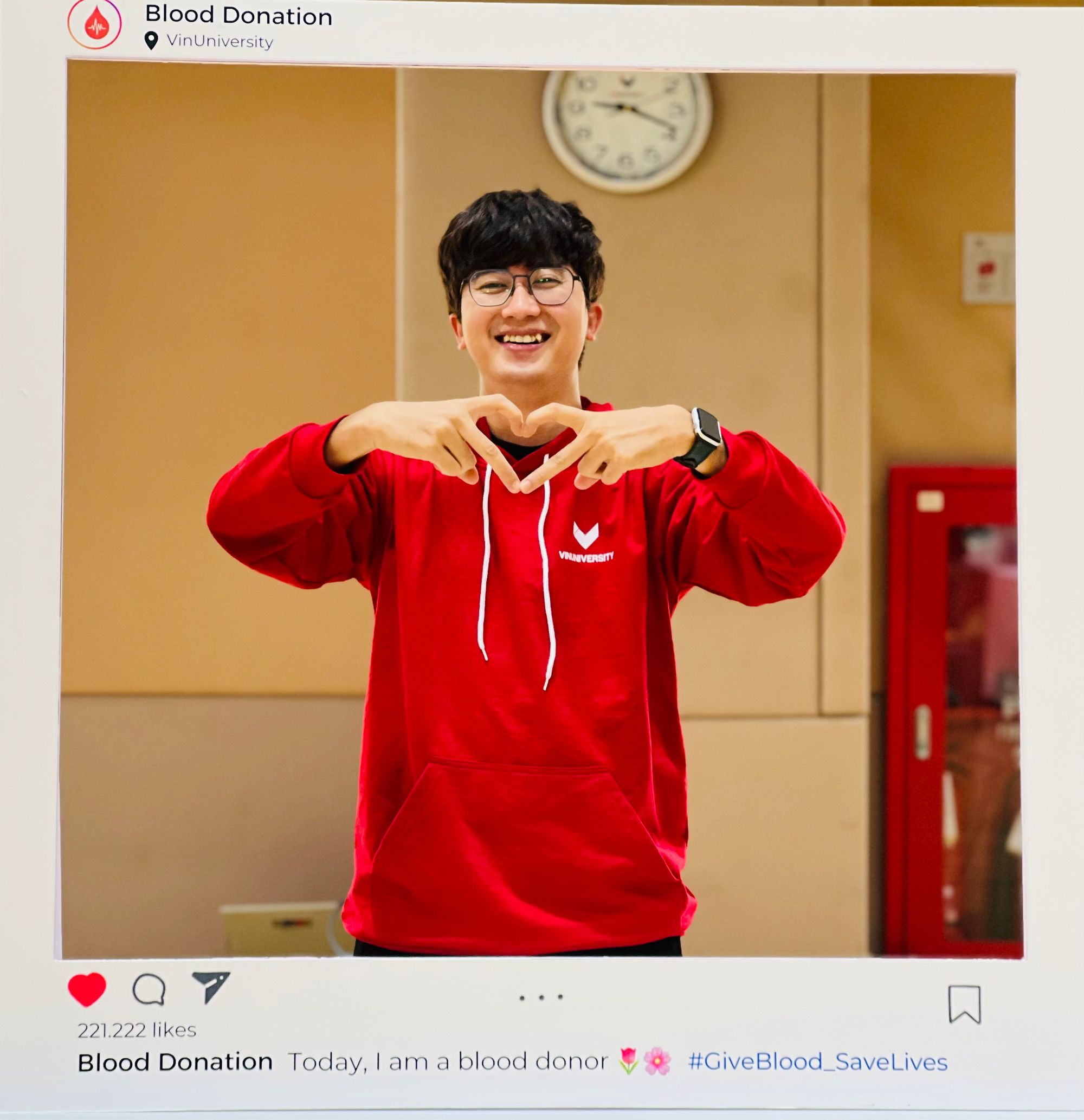Vietnam needs 2 million units of blood per year for injuries, surgeries, and illnesses requiring blood transfusion. According to the Ministry of Health, every 2 seconds, someone will need an external blood supply.
However, Vietnam can only self-sustain 70% of the total demand.
That is why it is very important to donate blood, as an act of patriotism for some, and empathy for others.
I distinctly remember the day there was an email asking for a blood donation sign-up; I did not even hesitate. There was a little backtalk when I saw the size of that needle, so I hesitated until the afternoon. Before I knew it, I was sitting in the chair waiting to be penetrated, and let me just say I am not cut out for hard intravenous drugs. The sensation could be described as inflammations of every tissue and weakening of every muscle, and the nurse asked me to squeeze a goddamn chew toy.

Probably because of paranoia, I would rather blood flow out of my body than go in; but then I think of where it would go. It would go to a lab to be tested for diseases, then separated into three different components: red blood cells, white blood cells, and plasma. Each with a different purpose and function, and each would go towards treating patients with different health conditions, who critically need them. Owing to the extreme need for blood, some of these might be exported or imported.
Then I started to think where the blood would come from altruistic people trying to help as much as they can. It is, however, disconcerting that a certain portion of these individuals is barred from participating in the donation.
Gay men are not allowed to donate blood; following the HIV and AIDS outbreak, men who have sex with other men are incorrectly labeled as the cause of the disease. The US FDA has put on an indefinite shadow ban on blood transfusion for this demographic and other countries started doing the same. The technology to test for blood-transmitted diseases has gotten a lot more advanced and accurate, and there are also a lot of prevention methods to avoid HIV transmission in the first place: condoms, PreP, and so on.
All of these mean the ban does not constitute a significant increase in risk, but a public sentiment of homophobia: gay or bisexual men are fundamentally diseased and dangerous.
I am truly happy that recently the National Institute of Hematology and Blood Transfusion of Vietnam have decided to amend its questionnaires:
“Have you ever had same-sex intercourse?”
To
“Have you had sex people have or have an increased risk of HIV and Hepatitis?” or
“Have you had sex with multiple people and/or without protective measures from STDs?”
Albeit small, this represents the very structural change of Vietnam and its policy on LGBTQIA+ individuals, now allowing them to donate blood, and tomorrow so much more. It is also a reflection of the core values of Vietnamese people: a united and loving “dân tộc”.

In the end, after the nurse pulled the needle out of my body and told me not to remove the bandage because I might die from bleeding out. I get treated to snacks, actual money, and an umbrella. I would have done it over and over again for nothing more than itself, but it did feel nice to be appreciated.
A month later, I have a permanent hypertrophic scar to remember it by.
Sincerely,
VinUnians
Comments
Sign in or become a Sincerely, VinUnians member to join the conversation.
Just enter your email below to get a log in link.









